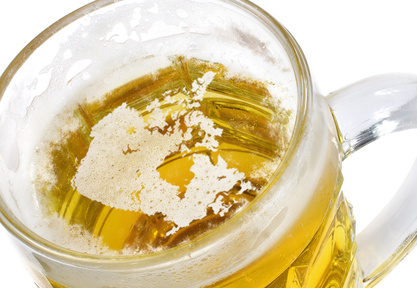Long after prohibition, beer sale restrictions live on

Nearly a century after the heyday of alcohol prohibition, Canadians are still faced with a whole slew of controls surrounding the sale of booze. Restrictions on the sale of beer, in particular, have been in the news of late.
You might have thought, for instance, that beer was soon going to be freely available in Ontario grocery stores—as it has been in neighbouring Quebec for as long as anyone can remember. Indeed, the Ontario government announced back in April that supermarkets in the province would begin selling beer by Christmas.
The devil, however, is in the details, which are being micromanaged from Queen’s Park. The convoluted limits on this liberalization of archaic restrictions are truly impressive.
For starters, only 450 of Ontario’s 1,500 supermarkets will be licensed to sell beer. Supermarkets will have to bid on the governmental permission slips that will grant them this special ability, heretofore virtually monopolized by Beer Store outlets.
The 450 lucky auction winners will only be allowed to sell six-packs, not cases of 12 or 24. And they will only be allowed to sell a total of 46 million of them per year, about 280 six-packs a day per store, or else pay a 1% penalty.
The government also apparently wants mid-size players to win some licences, in addition to the big supermarket chains. This implies that the auction will offer those smaller players some kind of preferential treatment.
To justify these measures, Ontario Finance Minister Charles Sousa said last week, “We want to get this right.” Why not simply emulate Quebec, where not only supermarkets but also convenience stores, all of them, have been selling beer (24-, 12-, and six-packs) year after year without causing the sky to fall?
I’m sure Labatt, Molson, and Sleeman—the brewing giants that control the Beer Store—would have preferred to monopolize retail sales in Quebec, too, of course, but gladly this province chose a different path.
Meanwhile, across Quebec’s other provincial border, a case was heard last month that featured a New Brunswick man, Gerard Comeau, fighting a fine he was given for buying cheaper Quebec booze and bringing it into his home province. The judge will render a decision next April.
Again, you might have thought that such controls were a thing of the past. After all, the federal government eliminated restrictions on taking beer and spirits across provincial lines this past February, and on wine back in 2012.
Unfortunately, those were just the federal restrictions; the provinces themselves have their own legal limits. For instance, in the past three years, only B.C. and Manitoba have amended their laws to allow individuals to import wine from other provinces for personal use.
As for bringing beer into New Brunswick, Section 134 of the province’s Liquor Control Act prohibits anyone from having more than 12 pints that weren’t purchased in one of NB Liquor’s outlets, where thanks to the monopoly’s hefty markup, beer retails for around twice what you’ll pay in Quebec.
Mr. Comeau was stopped during a police sting in 2012 and charged with illegally importing 14 cases of beer and three bottles of liquor from Quebec. Police confiscated his booze and fined him $292.50.
Whether in Ontario or New Brunswick or anywhere else, the notion that governments have any business deciding which adults can sell beer to which other adults is objectionable on purely philosophical grounds.
But the fact that Quebec, where beer is cheap and easily accessible, has not descended into chaos shows that micromanaging the beer market has no practical justification either.
Michel Kelly-Gagnon is President and CEO of the Montreal Economic Institute. The views reflected in this column are his own.
This op-ed was also published in the Calgary Sun, the Ottawa Sun, the Edmonton Sun, the Winnipeg Sun and the Daily Herald-Tribune.

